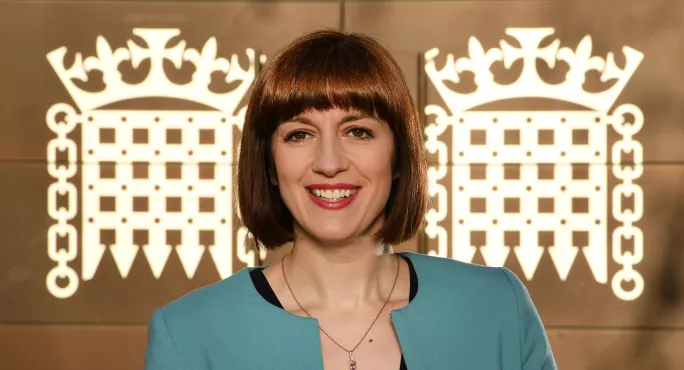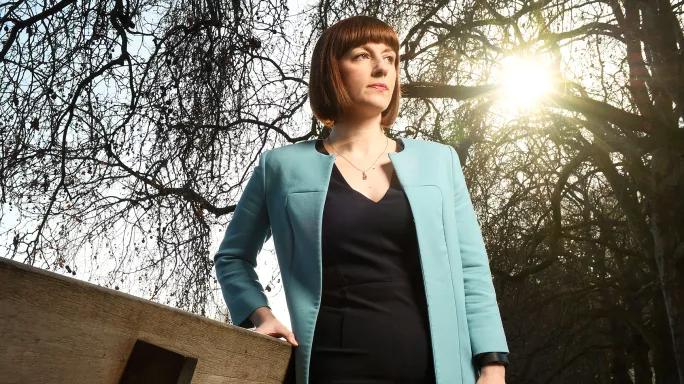Who is Bridget Phillipson?

Bridget Phillipson has been announced as education secretary following the Labour Party’s victory in the general election, after serving in the shadow role in opposition since 2021.
So, who is she and what might her priorities be at the Department for Education?
Who is Bridget Phillipson?
Bridget Phillipson was born in Gateshead, Tyne and Wear, in 1983 and grew up in the nearby town of Washington.
She recently spoke about her experiences growing up on a “council street” without a father but within a supportive family that valued education.
Phillipson told The Rest Is Politics podcast last month that education was “really, really important” to her as a child and that she was “very fortunate to come from a family where that was supported and encouraged”.
Speaking to Tes in 2022, she said that, where she grew up, there was high youth unemployment and crime and “children growing up in avoidable poverty”. She said these problems were impossible to ignore in education: “What was happening in school couldn’t be separated from real problems we faced.”
The secondary she attended was St Robert of Newminster Catholic School in Washington, and she has spoken about being a recipient of free school meals and then the education maintenance allowance, which was key in helping her to stay on and complete her A levels.
“For a lot of the people I went to school with, it was the difference between staying on or going at 16,” she told the Mirror in 2021.
While she was aware of the tough circumstances that many children at the school faced, she told Tes there were many “amazing teachers” there and an “ambition and determination to see us succeed ran right through the school”.
Part of that ambition included helping promising students to apply to Oxbridge: “I remember, as a sixth-former, getting a note in class to go and see Mr Hurst as soon as possible. I was worried. It turned out there was a visit being arranged from school to an open day for Oxford University, and I hadn’t put my name down for it. He wanted me to go and to think of applying.”
Ms Phillipson went on to secure a place at Hertford College, Oxford, to study modern history.
She had already joined the Labour Party aged 15 and became co-chair of the Oxford University Labour Club.
Progression to Parliament
After graduating, Ms Phillipson moved back to the North East and took a job working for her mother’s charity, Women in Need, acting as manager for a refuge that supported women and children fleeing domestic violence.
In the 2010 general election, she stood as Labour MP for Houghton and Sunderland South, aged just 26, and won the seat with more than 50 per cent of the votes cast.
Once in Parliament, she spent the first 10 years of her political career on the backbenches and brought her knowledge from her time at Women in Need to her role on the All-Party Parliamentary Group on Domestic and Sexual Violence.
In the general elections in 2015, 2017 and 2019 she won each time, although in the last election in 2019, she did see a reduction in her majority from more than 12,000 in 2017 to just over 3,000.
On the front bench
In 2020 she became shadow chief secretary to the Treasury. Then, in 2021, she was promoted to shadow secretary of state for education.
In that role, she unveiled several key Labour education policy pledges.

One clear area of focus for Ms Phillipson has been around early years provision - writing in Tes in July 2023, she said it was key to providing children with the right foundations for their education.
“It’s crucial, in particular, to make sure that every child can access the early years foundation stage and benefit from high-quality and effective early years education,” she said.
To this end, she announced, at the Labour Party conference in October 2023, a plan for a major review of early years provision, which will be led by the former chief inspector of schools Sir David Bell.
She has argued that Labour’s plan to introduce free breakfast clubs in all primary schools would help to boost early academic progress for pupils and give parents more flexibility around returning to work.
Ms Phillipson last year announced a plan to upskill primary school teachers to teach “real world” maths - which was seen as a counter to former prime minister Rishi Sunak’s maths-to-18 plan.
- Labour’s education policy: what to expect
- Who is Catherine McKinnell?
- 12 questions for the new Labour government on education
The funding for this training for teachers is set to come from Labour’s plan to end tax breaks for private schools, which it claims will raise an additional £1.7 billion, although some have disputed this figure.
When asked last month what her overall attitude to private education is, Ms Phillipson told The Rest Is Politics podcast that she believes “parents can make decisions about where they educate their children” but “personally it is not a choice I would make”.
She was adamant that taxing VAT on independent schools will not result in unmanageable numbers of privately educated children moving to the state sector, saying that falling rolls in the school system have led to “ample space” within state schools.
And she suggested that private schools can “seek to absorb” the VAT increase. “State schools have had to make some really tough choices in recent years, and I think private schools might like to consider how they cut their cloth,” she told the same podcast.
Tackling the recruitment crisis
Ms Phillipson has stated that Labour will use some of this planned tax windfall to help bring in 6,500 more teachers to the profession, although details on how this will be achieved remain to be seen.
“We are working on planning around how we bring it to life, looking at what we did last time around and how we make teaching a more attractive place to be,” she said at the Labour conference last year.
She has spoken strongly in favour of Labour’s plan to change the way Ofsted inspects schools, saying in a parliamentary debate in April: “I am clear that under Labour the days of one-word judgments will come to an end.”
Regarding Labour’s planned review of the school curriculum, she wrote in Tes last year of the need to arm children with “both the knowledge and skills not merely to face their futures but to shape them”, and of the importance of oracy.
She has not said much about school structures or academisation, but told Tes during a press conference last year that she wanted “more transparency, more accountability” over the decision-making made by regional directors.
For the latest education news and analysis delivered directly to your inbox every weekday morning, sign up to the Tes Daily newsletter
topics in this article



